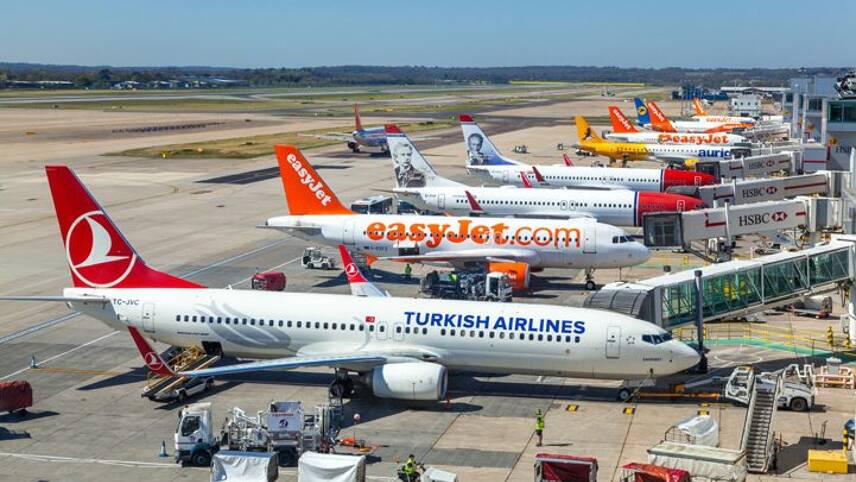Register for free and continue reading
Join our growing army of changemakers and get unlimited access to our premium content

EasyJet
By Tuesday this week, airlines including easyJet, Scandinavian Airlines and Tui had secured loans and other financial support amounting to €3.36bn. A further €9.47bn is being sought by other airlines, data tracking by Transport & Environment, Greenpeace and Carbon Watch reveals.
By the time air travel came to a near halt in March, greenhouse gas emissions from the sector had reached record levels. But there are no binding environmental conditions being attached to any of the already agreed bailouts or future loans being sought.
The exception is in Austria, where the transport minister, Leonore Gewessler, responded to a request for public support by Austrian Airlines (part of the Lufthansa group) by saying any bailout should be linked to climate targets.
The amounts being negotiated for bailout plans and recapitalisation are likely to increase as talks continue with some of the biggest European airlines, including Air France, KLM, Lufthansa, British Airways and Alitalia.
In the UK, Virgin’s Richard Branson has come under fire for seeking a £565m bailout from the government. He has been told to explore other ways of getting cash before seeking state aid but environmental conditions have not been at the forefront of government comments on the bailout plea.
EasyJet, which has secured a £600m emergency loan from the UK government, emitted 4.1% more CO2 in 2019 than in 2018.
Andrew Murphy, the aviation manager for Transport & Environment, said: “Airlines are seeking public money so they can get back to the business-as-usual of soaring emissions enabled by light-touch pollution laws and tax exemptions.
“It’s time to ensure that aviation makes a green transition by linking aid to taxes and greener fuels which will reverse the sector’s rapid emissions growth.”
Aviation is one of the fastest-growing contributors to greenhouse gas emissions over the past 20 years. In the last five years, there has been a 26% rise in GHG emissions from aviation.
Last year, Ryanair joined coal plants as one of Europe’s top 10 polluters after increasing its emissions on flights within the continent by 5.9%.
A global scheme run by the UN to offset aviation emissions that grow above 2020 levels, known as Corsia, began this year, but airlines are seeking delays and changes to it as a result of the coronavirus crisis.
Sandra Laville
This article first appeared on the Guardian
edie is part of the Guardian Environment Network


Please login or Register to leave a comment.